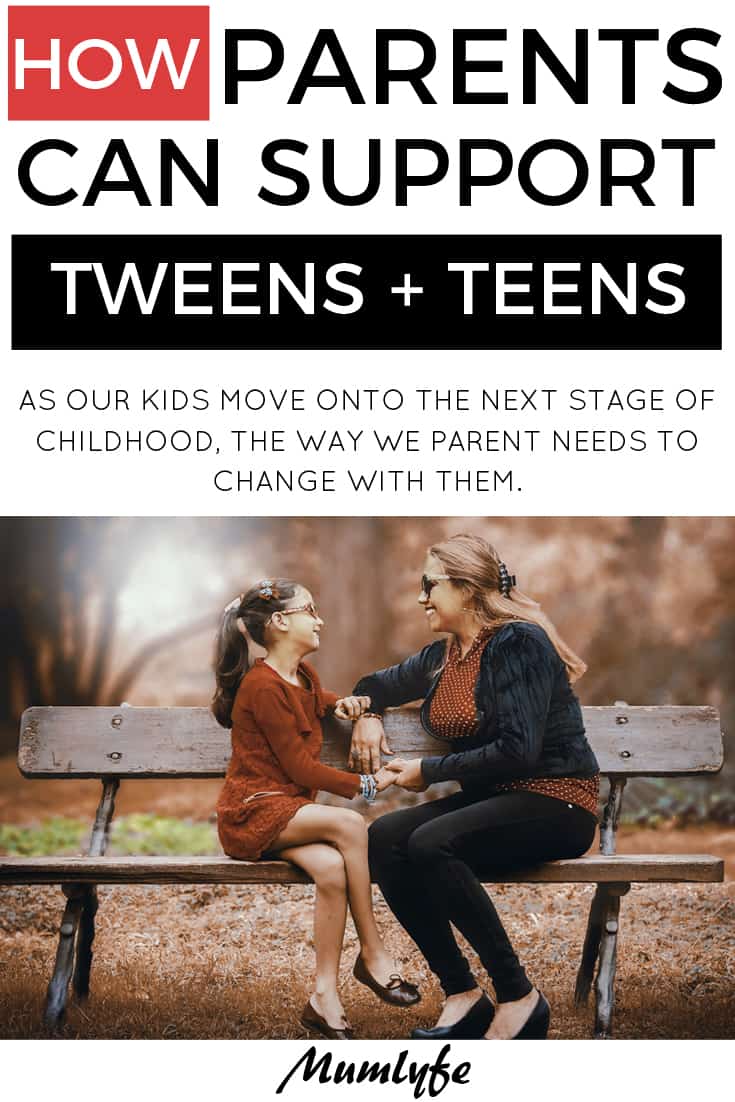Parenting is a BIG job. Just when you think you’ve got it figured out, suddenly your child is moving onto the next stage and you’re frantically trying to read the road map. Once we’ve finally mastered parenting young kids – all those nappies. sleepless nights, big school angst, resourcefulness and creativity – we find ourselves having to adjust our parenting to support tweens and teens.
Article by Suni Sánchez
We’ve passed the first couple of stages of childhood… congratulations! We’ve advanced to the next level.
Now what?
Where do we stand after we’ve laid the foundation? What are the crucial elements and skills required to support tweens and teens? In my new book, Welcome to Parenthood, I provide a blueprint for growing your family in a connected, self-aware way. From these foundations, our understanding of ourselves as parents of older kids can grow. Here are some thought starters to help you parent and support tweens and teens…
1. Take stock
Yes, we have yelled, lost it and said things we regretted, but what about when you supported your child through a big emotional outburst and you stayed calm? Did you give yourself a pat on the back for that?
How about when you overcame your fear of travelling with young children so you could show your child the world?
Whether being a parent felt ‘natural’ to you or not, I can assure you there are things you have done and are doing you never thought would be possible and/or you never imagined doing. As your child grows and moves through each development stage, make sure you take stock of the positives.
2. Get to know your child’s next development stage
From the first seven to the second seven years this means:
• Our seven and eight-year-old child will enjoy having more independence, they will want their primary carer to counsel them and offer suggestions, rather than directing or commanding them.
• They need to do things their own way.
• Their strong will is more easily flexed.
• They will be more venturesome, daring and brave. More coordinated in their physical activities and also in their thinking.
• They’ll have an increasing awareness of their emotions; they will persevere in the face of challenges and stay ‘with it’ even when things get tough.
• Increasing appetite and energy, yes! As well as better sleep.
• They will not like to fail but they will try, which means they might be hard on themselves. They will be more aware of themselves as individuals, some may feel unease as they compare themselves to others.
These adjustments will take a toll if we don’t feel confident and competent in our role as parents. We can only parent and support tweens and teens when we feel supported and valued ourselves.
3. Go back to basics
Embrace parenting fully. And that means seeing it as a pathway to growing and enriching our lives, rather than resenting it. How?
Human-to-human relationships
Remember, a child is a full, complete human being from day one – they are not second-class citizens, nor in this world to be ‘shaped’ by someone else or to be controlled. This will reduce the power struggles you may have with your child.
When we see our role as a guide, a mentor who uplifts, when we become our child’s advocate, we enter into a relationship where there is less pressure and more connection.
Family living is not just about the child thriving or the parent thriving, but about the whole family having a special bond and experiencing positive mental health
Honest communication
I’m all in for building open communication with our teens, but why wait?
Learning to communicate with our young children – listening and understanding their side of the story, fully, truly, without judging/assuming/belittling them/punishing them – about their broken toy, for instance, means our kids will trust us and will have the confidence to come to us about their broken hearts too.
Preparation is key
In my decade as a family dynamics researcher, I have come to realise that a lot of the problems families experience are entirely preventable.
What are some ways we can prepare?
• Knowing where our child is at developmentally
• Learning to self-regulate our own emotions so we can raise emotionally healthy and strong kids
• Teaching kids about safety, assessing risk and self-protective strategies (e.g swimming if you live by the ocean, books and talks about sexual abuse prevention, etc)
Our task as guides is not to hold our kids back, but to educate ourselves and give our kids the appropriate skills for them to enjoy life’s opportunities.
Family living is not just about the child thriving or the parent thriving, but about the whole family having a special bond and experiencing positive mental health, peace of mind and yes, happiness.
Have you felt a shift in the way you parent as the kids have grown?
+ + +
Suni Sánchez is the mother of Teo and Lui, author of Welcome to Parenthood and founder and CEO of Human HQ™. One of her favourite things is to be a fierce champion of parents and children and dancing.
Image by edsavi30



